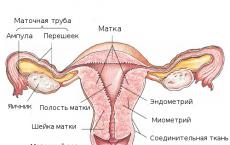Likhachev Dmitry Sergeevich for shock work. Academician Dmitry Likhachev. “It’s worth it so that the events, the atmosphere of previous years are not forgotten, and most importantly, so that a trace of people who, perhaps, no one else will ever remember, about whom the documents lie”
November 15 (November 2, according to the old style) is the day of memory of one of the most famous and remarkable women in Russia - the holy venerable martyr Theodora, in the world of the boyar Feodosia Prokopievna Morozova (1675).
Among the martyrs of the Russian Orthodox Old Believer Church, one of the first places was taken by the noblewoman Feodosia Prokopievna Morozova with her sister, Princess Evdokia Urusova.

Feodosia Prokopievna was born on May 21, 1632 in Moscow. Her father, Sokovnin Prokopy Fedorovich, was a devious, was in family ties with the first wife of Tsar Alexei Mikhailovich Romanov, Maria Ilyinichnaya. Theodosia was one of the courtiers who accompanied the queen.
At the age of seventeen, the girl was married to Gleb Ivanovich Morozov, a representative of a noble boyar family, related to the Romanov family.
Feodosia Prokopyevna occupied the place of a riding noblewoman, had great influence in Moscow.
A representative of the Old Believer faith, Morozova always treated the poor and holy fools favorably, gave them alms. In addition, adherents of the Old Believers often gathered in her house to pray according to the old Russian canons at the ancient icons. The woman closely communicated with Archpriest Avvakum and did not accept the reforms of Patriarch Nikon.
Tsar Alexei Mikhailovich did not like the beliefs of the riding noblewoman, he repeatedly tried to influence Morozova through relatives, but the noblewoman stood her ground.
On the evening of November 16, 1671, Archimandrite Joachim came to Morozova with the duma clerk Hilarion. The sister of the noblewoman, Princess Evdokia Urusova, was also in the house. To show their disrespectful attitude towards the guests, Theodosia and Evdokia went to bed and answered the questions of those who came lying down. After interrogation, the women were shackled and left under house arrest. Two days later, Morozova was transferred first to Chudov, and then to the Pskov-Caves Monastery.
After the imprisonment of the noblewoman, her only son Ivan died, two brothers were exiled, and all the property was transferred to the royal treasury.
At the end of 1674, Morozova was transferred to the Yamskaya yard. There she was tortured on the rack to force her to give up her religious beliefs, but the woman remained unshakable. The richest and most influential Muscovite in the past died on November 2, 1675 from exhaustion. Shortly before her death, she asked the guards to wash her shirt in the river so that she could die in clean clothes.
On the night of November 1st to 2nd, the saint reposed in the Lord.
In her place was transferred Marya Danilovna, who until then had languished in prison among notorious criminals, and no more than a month later she also passed away. The old nun Melanya and her associate nun Justinya were burned at the stake. Many other women were killed and tortured during the reign of the "quietest" king.
In this way, that ill-fated church “reform”, alien to the Russian people, was imposed, the tragic consequences of which we are still experiencing.

Dmitry Sergeevich Likhachev is a prominent figure in Russian culture, academician of the Russian Academy of Sciences, philologist, art critic, author of numerous studies and works in the history of Russian literature, literature, and icon painting.
D.S. Likhachev is an outstanding example of a defender of Russian culture and constant propaganda of morality and spirituality. Dmitry Sergeevich Likhachev was born on November 28, 1906 in St. Petersburg.
In the 1920s, Dmitry Likhachev studied at the Leningrad state university at the Faculty of Social Sciences, Department of Linguistics.
Likhachev stood up for the preservation of the roots of Russian culture and, after reading a report "on spelling distorted by modernity", was arrested for counter-revolutionary activities.
From 1928 to 1931 Likhachev arrived as a political prisoner on Solovki and on the construction of the White Sea-Baltic Canal.
In the summer of 1932, the future academician Likhachev returned to Leningrad. With difficulty he got a job, a criminal record interfered. He continued his scientific research, working as a proofreader at the publishing house of the Academy of Sciences. In 1938, Likhachev went to work at the Institute of Russian Literature of the USSR Academy of Sciences. On the eve of the Second World War, D.S. Likhachev defended his dissertation and became a candidate of philological sciences.
D.S. Likhachev remained with his wife and two children in besieged Leningrad and continued his scientific work. In 1942, his first book, The Defense of Old Russian Cities, was published.
In 1945-1947. D.S. Likhachev devotes himself to work on books on the history of Russian literature and culture.
In 1950 D.S. Likhachev prepared two of the most important works of ancient Russian literature - The Tale of Bygone Years and The Tale of Igor's Campaign.
By 1953, the prominent scientist Likhachev had already become a corresponding member of the USSR Academy of Sciences, and by 1970, a full member of the USSR Academy of Sciences. His scientific works recognized in the world cultural community, and academician Likhachev is already considered one of the most prominent Slavists in the world.
The most famous scientific works of Academician Likhachev: “Man in Literature Ancient Russia”, “Textology”, “Culture of Russia in the time of Andrei Rublev and Epiphanius the Wise”, “Poetics of Old Russian Literature”, “Epoches and Styles”, “Great Heritage”.
Academician Likhachev's contribution to the study of ancient Russian literature expanded the possibility of understanding this richest layer of Russian culture.
The activity of Academician Likhachev is marked by recognition all over the world. He was an honorary professor at many foreign universities, including Oxford (Great Britain), Zurich (Switzerland), Sofia (Bulgaria).
In the 1980s and 1990s, Academician Likhachev actively advocated the preservation of the country's cultural monuments and encouraged people to honor history as a "moral category." In the biography of Academician Likhachev of that period, there are many publications and speeches on the topic of "ecology of cultural space". It was in those years that Likhachev gained incredible prestige and he was rightly recognized as the conscience of the nation. On the initiative of Likhachev, the Soviet (Russian) Cultural Fund was created.
D.S. Likhachev, the winner of a huge number of state prizes and awards of the USSR, as well as honorary regalia from all over the world, became a symbol of the struggle for the restoration of spiritual traditions during the perestroika years.
Academician Likhachev urged President Yeltsin to take part in the burial of the remains of the last tsar Russian Empire Nicholas and members of the imperial family on July 18, 1997.
Among those dear to D.S. Likhachev awards the country three anniversary medals "Victory in the Great Patriotic War", a medal "For labor valor during the Great patriotic war”, the Order of St. Andrew the First-Called - for an outstanding contribution to the development of national culture, the Order of Merit for the Fatherland, II degree - for outstanding services to the state and a great personal contribution to the development of Russian culture.
The biography of Dmitry Sergeevich Likhachev, a prominent cultural figure of the 20th century, ended at the end of the century. He died on September 30, 1999.
Personality of Academician D.S. Likhachev, his activities constitute a significant layer of the spiritual values of Russian culture. Even during his lifetime, a planet was named after him. 2006 was declared the Year of Culture, Education, Humanities - the year of Academician D.S. Likhachev.
Victoria Maltseva
The book, written by the most prominent Soviet scientist, Academician D.S. Likhachev, devoted to issues of aesthetic, moral and patriotic education.
Against a broad cultural and historical background, the author reveals the enduring value of the monuments of Russian literature and art, the bright pages of the heroic past of the country, the continuity of the moral and artistic and aesthetic traditions of the centuries-old history of our country.
Poetics of Old Russian Literature
The artistic specificity of ancient Russian literature is increasingly attracting the attention of medieval literary critics. This is understandable: without a full identification of all the artistic features of Russian literature of the XI-XVII centuries. the construction of the history of Russian literature and the aesthetic evaluation of the monuments of Russian literature of the first seven centuries of its existence are impossible.
Is it possible to speak of ancient Russian literature as a kind of unity from the point of view of historical poetics? Is there continuity in the development of Russian literature from ancient to new, and what is the essence of the differences between ancient Russian literature and modern? These questions must be answered throughout this book, but they can be tentatively posed at the beginning of the book.
I remember
In the book of the Hero of Socialist Labor Academician D.S. Likhachev published his memoirs of childhood, youth, passion for ancient Russian literature. This included the Solovetsky Records deciphered in 1989 by Likhachev, telling about his imprisonment during the Stalinist repressions. The records were handed over to parents at will in 1930.
The second section of the book was made up of journalistic speeches by D.S. Likhachev recent years. These are articles, interviews, conversations about painful problems of society - problems of morality and culture.
Memories
Written in the genre of memoirs, the book outgrows the traditional framework of the memoir genre: the author does not aim to resurrect only the events of his own life. Recreating the atmosphere of the past years and the history of many human destinies with which he managed to get in touch, D.S. Likhachev encourages the reader to peer into the face of the era, think about its patterns, learn from the past.
The chapters of the book are milestones in Russian history and the history of Russian culture of the 20th century.
Notes about Russian. Collection
Dmitry Sergeevich Likhachev is an outstanding scientist of the 20th century.
His creative heritage is extremely extensive and diverse, his research, journalistic articles and notes dealt with various aspects of the history of culture - from ancient Russian literature, to the study of which he made a huge contribution, to landscape gardening styles of the 18th-19th centuries.
This book contains articles and notes by D.S. Likhachev different years. Extracted by the author from notebooks and far beyond the limits of "pure science", these materials are united by a cross-cutting theme - the historical past and future of Russia.
Literature - reality - literature
In this book, D.S. Likhachev takes "philological walks" through famous works of literature, stopping at individual details, images, motives.
What is the similarity between Emperor Nicholas I and Gogol's Manilov? Why did Dostoevsky in his novels and short stories always indicate the St. Petersburg addresses of his heroes so precisely and define the "history of time" so clearly? How are the traditions of ancient Russian literature manifested in Tolstoy's epic novel "War and Peace"? What are the similarities between Akhmatova's "Poem Without a Hero" and the lines of Blok and Gogol? In which poem did Blok use the principle of symmetry to reinforce the theme of life and death?
culture. He lived a very long life, in which there were hardships, persecutions, as well as grandiose achievements in the scientific field, recognition not only at home, but throughout the world. When Dmitry Sergeevich died, they spoke with one voice: he was the conscience of the nation. And there is no stretch in this pompous definition. Indeed, Likhachev was an example of selfless and relentless service to the Motherland.
He was born in St. Petersburg, in the family of an electrical engineer Sergei Mikhailovich Likhachev. The Likhachevs lived modestly, but found opportunities not to give up their passion - regular visits to the Mariinsky Theater, or rather, ballet performances. And in the summer they rented a dacha in Kuokkale, where Dmitry joined the environment of artistic youth. In 1914, he entered the gymnasium, subsequently changed several schools, as the education system changed in connection with the events of the revolution and civil war. In 1923, Dmitry entered the ethnological and linguistic department of the Faculty of Social Sciences of Petrograd University. At some point, he entered a student circle under the comic name " space academy sciences". The members of this circle met regularly, read and discussed each other's reports. In February 1928, Dmitry Likhachev was arrested for participating in a circle and sentenced to 5 years "for counter-revolutionary activities." The investigation lasted six months, after which Likhachev was sent to the Solovetsky camp.
Likhachev later called the experience of life in the camp his "second and main university." He changed several activities on Solovki. For example, he worked as an employee of the Criminological Cabinet and organized a labor colony for teenagers. “I came out of all this trouble with a new knowledge of life and with a new state of mind- said Dmitry Sergeevich in an interview. - The good that I managed to do to hundreds of teenagers, saving their lives, and to many other people, the good received from the fellow campers themselves, the experience of everything I saw created in me some kind of peace and mental health that was very deeply rooted in me..
Likhachev was released ahead of schedule, in 1932, and “with a red stripe” - that is, with a certificate that he was a shock worker in the construction of the White Sea-Baltic Canal, and this certificate gave him the right to live anywhere. He returned to Leningrad, worked as a proofreader at the publishing house of the Academy of Sciences (a criminal record prevented him from getting a more serious job). In 1938, through the efforts of the leaders of the Academy of Sciences of the USSR, Likhachev's conviction was expunged. Then Dmitry Sergeevich went to work at the Institute of Russian Literature of the USSR Academy of Sciences (Pushkin House). In June 1941 he defended his Ph.D. thesis on the topic "Novgorod Chronicles of the XII century." The scientist defended his doctoral dissertation after the war, in 1947.
Dmitry Likhachev. 1987 Photo: aif.ru

USSR State Prize winner Dmitry Likhachev (left) talks with Russian Soviet writer Veniamin Kaverin at the 8th Congress of Soviet Writers. Photo: aif.ru

D. S. Likhachev. May 1967 Photo: likhachev.lfond.spb.ru
The Likhachevs (by that time Dmitry Sergeevich was married, he had two daughters) survived the war in part in besieged Leningrad. After the terrible winter of 1941–1942, they were evacuated to Kazan. After his stay in the camp, Dmitry Sergeevich's health was undermined, and he was not subject to conscription to the front.
The main topic of Likhachev the scientist was Old Russian literature. In 1950, under his scientific guidance, the Tale of Bygone Years and The Tale of Igor's Campaign were prepared for publication in the Literary Monuments series. A team of talented researchers of ancient Russian literature gathered around the scientist. From 1954 until the end of his life, Dmitry Sergeevich headed the sector of ancient Russian literature of the Pushkin House. In 1953, Likhachev was elected a corresponding member of the USSR Academy of Sciences. At that time, he already enjoyed unquestioned authority among all the Slavic scholars of the world.
The 50s, 60s, 70s were an incredibly eventful time for a scientist, when his most important books were published: “Man in the Literature of Ancient Russia”, “The Culture of Russia in the Time of Andrei Rublev and Epiphanius the Wise”, “Textology”, “Poetics Old Russian Literature”, “Epochs and Styles”, “Great Heritage”. Likhachev in many ways opened ancient Russian literature to a wide range of readers, did everything to make it “come to life”, become interesting not only to philologists.
In the second half of the 80s and in the 90s, Dmitry Sergeevich's authority was incredibly great not only in academic circles, he was revered by people of various professions and political views. He acted as a propagandist for the protection of monuments - both tangible and intangible. From 1986 to 1993, Academician Likhachev was chairman of the Russian Cultural Foundation, was elected a people's deputy of the Supreme Council.

V.P. Adrianova-Peretz and D.S. Likhachev. 1967 Photo: likhachev.lfond.spb.ru

Dmitry Likhachev. Photo: slvf.ru

D.S. Likhachev and V.G. Rasputin. 1986 Photo: likhachev.lfond.spb.ru
Dmitry Sergeevich lived for 92 years, during his earthly journey in Russia political regimes changed several times. He was born in St. Petersburg and died in it, but he lived both in Petrograd and Leningrad ... The outstanding scientist carried faith through all the trials (and his parents were from Old Believer families) and endurance, always remained true to his mission - to keep the memory, history, culture. Dmitry Sergeevich suffered from the Soviet regime, but did not become a dissident, he always found a reasonable compromise in relations with his superiors in order to be able to do his job. His conscience was not stained by any unseemly act. He once wrote about his experience of serving time in Solovki: “I understood the following: every day is a gift from God. I need to live the day, be content to live another day. And be grateful for every day. Therefore, there is no need to be afraid of anything in the world.". In the life of Dmitry Sergeevich there were many, many days, each of which he filled with work to increase the cultural wealth of Russia.



